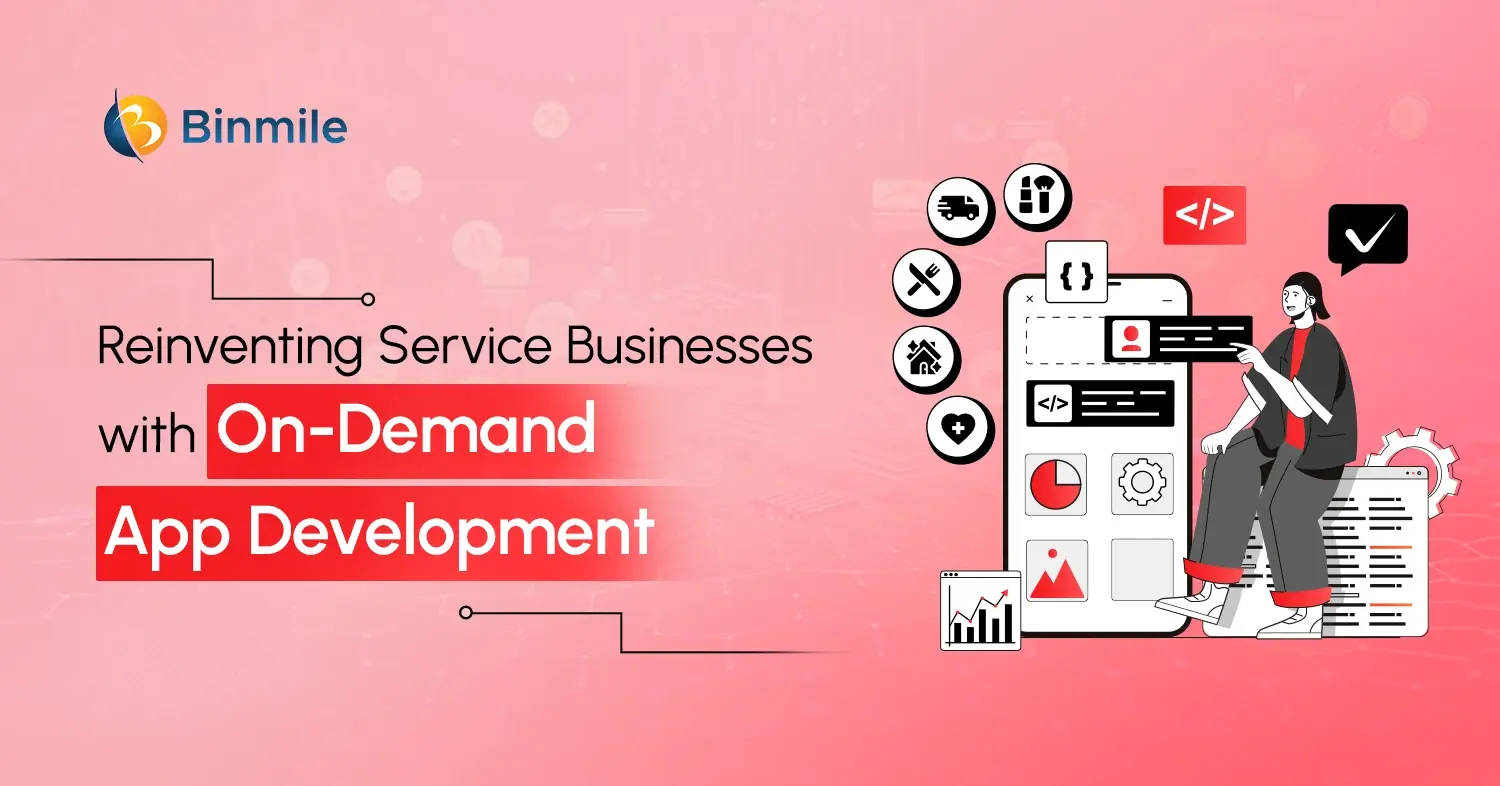- 6 step hybrid app development guide
- 7 Factors influence Hybrid App Development Cost
- benefits of developing hybrid apps
- Factors Affecting Hybrid App Development Cost
- hybrid app development cost
- Hybrid App Development Guide
- popular hybrid apps
- Popular Use Case of Hybrid Apps
- Step-by-Step Hybrid App Development Guide
- what is hybrid app
Organizations are tapping into mobile-savvy users with highly functional, scalable, and cost-effective mobile app solutions. However, when it comes to mobile application development, the choice narrows down to native or hybrid mobile app development. While both mediums have their pros and cons, many prefer hybrid because of factors such as cost-effectiveness, scalability, faster time to market, and other factors. 37 of the Top 50 retail apps in the USA are hybrid. Moreover, popular platforms like Twitter, Instagram, Gmail, Uber, etc., use hybrid applications. So, you must be wondering what hybrid apps are and their benefits. In addition, what is the hybrid app development cost?
Think about an app that is used across different platforms like Android, iOS, tablets, and laptops. Isn’t it unique and cost-effective? Won’t it make every company’s work a little easier? That’s what hybrid app development is about. Hybrid mobile apps are a mix and the best of both native apps and web apps but the core of the application is written using web technologies. With the help of some plugins, these applications can have full access to the mobile device’s features. So let’s understand what hybrid app development is. What about some of the hybrid solutions out there? Also, what are the factors that impact hybrid app development cost to know the best way to leverage this transformative app development services?
Ultimate Guide to Hybrid App Development: Everything You Need to Know
We will later understand how hybrid apps offer cost-effective and highly functional app solutions for businesses and help them reach a wider audience on the platforms of their choice. For now, let’s get to know the entire hybrid app development
What is a Hybrid App?
A hybrid app offers users the best of both worlds and comes with- cross-platform compatibility or responsiveness of a web app, and offline connectivity or access to the device hardware of a native app. Similarly, hybrid apps are available via app stores, can access hardware on your phone, and are installed on your device, just like a native app. So, are hybrid apps and native same or different? What sets these two apart is that native apps are built from scratch for a specific operating system while hybrid apps are built for cross-platform compatibility.
Popular Real-Life Examples of Successful Hybrid Apps
- Uber
- Gmail
- Evernote
From Concept to Launch: A Step-by-Step Hybrid App Development Guide
Hybrid app development typically involves several key stages to ensure a smooth and successful process. Here are the 6 essential stages:

- Planning and Strategy: We define the app’s purpose, target audience, and core features here. Establish clear goals, create a project roadmap, and choose the development approach. Identify the technology stack and frameworks that align with your project requirements.
- Design: It involves creating wireframes and prototypes to visualize the app’s user interface (UI) and user experience (UX). Focus on designing a responsive UI that adapts to various screen sizes. Ensure consistency in branding and prioritize an intuitive navigation structure.
- Development: From here the building stage of the app starts and involves coding the actual hybrid app based on the chosen framework (e.g., React Native, Flutter, Ionic). Implement the defined features, integrate with backend services, and optimize the code for performance
- Testing: Rigorous testing is critical to ensure the hybrid app’s functionality, security, and performance. Conduct compatibility testing on different devices and operating systems. Use automated testing tools and manual testing to identify and rectify any bugs or glitches. Thorough testing helps deliver a polished and error-free app.
- Deployment: Once the app passes all tests, it is ready for deployment. Submit the hybrid app to the respective app stores (e.g., Apple App Store, Google Play Store). Ensure compliance with submission guidelines and provide all necessary information.
- Maintenance and Updates: Ongoing maintenance and updates help you introduce new features, improve security, and enhance overall performance. Address user feedback and fix any emerging issues. Plan for long-term maintenance to ensure the app remains compatible with evolving technologies and operating systems.
Start your hybrid app journey today! Partner with us to plan, design, and develop a high-performance hybrid app. We've got you covered, from initial planning to ongoing maintenance
7 Key Factors Affecting Hybrid App Development Cost
- The complexity of features: Simple apps with basic functionalities cost less compared to apps with advanced features like real-time chat, offline functionality, or complex animations. Expect a range of $5,000 – $25,000+ for basic to complex features.
- Third-party integrations: Integrating existing services like maps, social media logins, or payment gateways can add complexity and cost. It is typically ranging from $1,000 – $5,000+ per integration.
- UI/UX design: A well-designed and intuitive interface enhances user experience in apps but requires skilled designers. Depending on the project’s scope, the cost can be anywhere from $2,000 – $10,000+.
- Developer location: If you’re looking to outsource app development services, then a developer’s or the vendor’s location matters a lot. Rates vary considerably depending on the developer’s geographical location. Hourly rates can range from $20 – $200+, with regions like North America and Western Europe typically commanding higher fees.
- App maintenance: Ongoing maintenance to address bugs, fix compatibility issues, and implement new features incurs additional costs. Budget 15-20% of the initial development cost for annual maintenance.
- Development team experience: Hiring experienced developers with a strong understanding of hybrid frameworks naturally comes at a premium compared to working with less experienced individuals.
- Project management: Efficient project management ensures smooth development and minimizes wasted resources. Consider incorporating project management tools or hiring a dedicated project manager. Consider the additional cost of $1,000 – $5,000+ to the overall hybrid app development cost.
Hybrid App Development: Benefits & Popular Frameworks
Here are 5 benefits of hybrid app development for businesses:

- Cost-Effective: Developing separate native apps for iOS and Android can be expensive. Hybrid apps use a single codebase, reducing app development costs and ongoing maintenance expenses.
- Faster Time-to-Market: With only one codebase to worry about, development is faster. This allows businesses to get their app to market quickly and capitalize on new opportunities.
- Wider Reach: A single hybrid app can be deployed on both Android and iOS platforms, reaching a larger audience without the extra development effort.
- Easier Maintenance: Updates and bug fixes only need to be made to one codebase, simplifying the maintenance process and saving businesses time and money in the long run.
- Access to Native Features: Hybrid apps can leverage plugins and APIs to access device features like camera, GPS, and contacts. This allows businesses to create feature-rich apps that provide a user experience closer to native apps, without needing to develop entirely separate versions.
Popular Tool for Building Hybrid Apps
- React Native: It lets you utilize native code and allows you to develop multi-platform user interface components with JSX.
- Ionic: It uses web-view and other plugins to access native features, and built-in support for AngularJS, in addition, progressive web app development is quite easy on it.
- Cordova: It’s the oldest hybrid app framework that runs a single-page application in a web browser and uses plugins for native APIs.
- Xamarin: A hybrid app framework from Microsoft that uses C# and .NET to achieve native performance and code reusability.
- Flutter: A new framework that uses Dart and combines JIT and AOT compilation to offer a native app-like experience and is quite popular for flexibility and speed.
Also Read: Top Mobile App Development Technologies
Wrapping Up
There’s no doubt mobile app development services consume a lot of time and resources. However, considering the digital landscape we’re in, businesses cannot afford to compromise on the quality of the app’s functionality. So, hybrid app development seems like the right choice as it offers cross-platform functionality, lower cost but rapid development rate, and more. For an effective and cost-efficient app development process, businesses need to understand the intricacies of the software development process, app development cost, and which framework to go for while building apps.
Hopefully, this blog has helped you understand the nitty-gritty of the hybrid app development process. The comprehensive guide will make it easier for businesses to ensure that their hybrid app development project is streamlined and organized for a more efficient development and launch experience. Additionally, you can seek a mobile development services provider, the company can help you develop the app quickly, and effectively without bugs, flaws, or breaking your bank!
Frequently Asked Questions
When selecting a hybrid app development services provider, consider:
- Experience: Proven track record in hybrid mobile development.
- Technology Expertise: Proficiency in leading frameworks like React Native and Flutter.
- Client Reviews: Positive testimonials and case studies.
- Support: Ongoing maintenance and post-launch assistance.
- Customization: Ability to meet unique business needs.
By partnering with a reputable hybrid app development company, you ensure a smooth and successful app delivery across platforms.
The timeline for hybrid app development depends on the app’s complexity and features. On average:
- Basic Apps: 2-3 months
- Medium Complexity: 4-6 months
- Advanced Features: 6-12 months Using hybrid app development services accelerates the process due to shared code across platforms.
Hybrid app development uses a unified codebase to build applications compatible with multiple platforms, while native app development requires separate codebases for each platform (e.g., Java for Android, Swift for iOS). Hybrid apps are more cost-effective and quicker to develop, while native apps typically provide better performance and user experience.









